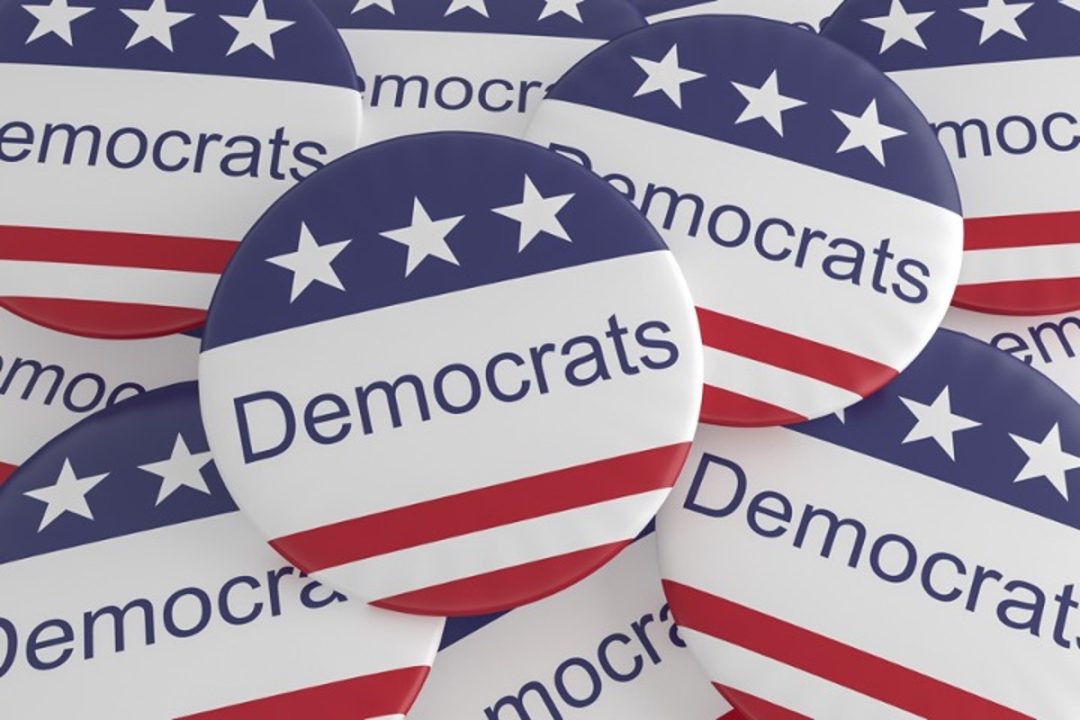
Word has it that the Democrats, divided between their progressive and “moderate” (read: only somewhat radical) wings and tired of having extremism lose them elections, are making changes designed to deliver 2026 and ’28 victory. Oh, it’s not a Road to Damascus moment, but a “Road to Just Ask Us” moment. That is, they’re polling voters and are claiming to actually want to respond to their wants and needs.
Of course, the “poll-oriented Democrat” has never been an endangered species (see Gavin Newsom, et al.) But it’s different now. Progressive and “moderate” Democrats have both released reports based on more-comprehensive polling that purportedly reveals America’s political soul. And, states the liberal arts-and-croissant-crowd Atlantic, members
of the far left and the center seem to have concluded that, for Democrats to win elections, each side needs to become more like the other.
Yet while this may work to win elections, will it work for America? After all, a piece of advice from a liberal — late poet Maya Angelou — is relevant here. “When someone shows you who they are,” she advised, “believe them the first time.” In other words, the Democrats may be intent on changing the packaging. But what of the product within?
Seeing the Light, Just Not the Eternal One
The Atlantic, which doesn’t seem to trouble over that question, reports on the story, writing Thursday:
The first report, “Democrats’ Rust Belt Struggles and the Promise of Independent Politics,” was produced by a constellation of progressive organizations and labor groups — some of which were founded to channel the energies of the 2016 Bernie Sanders campaign — along with the socialist magazine Jacobin. And yet the report does not call for classic Sandersian policies such as Medicare for All and universal child care; indeed, it warns against big redistributive government interventions. Its authors point out that such programs are “often met with skepticism by working-class voters, who may distrust government-administered systems they perceive as inefficient, overly bureaucratic, or disproportionately benefiting others.” This will sound obvious to some readers, but coming from the Bernie left, it’s a major concession.
… “Deciding to Win” ends up in a similar place, starting from the opposite direction. Democratic moderates have long been associated with such technocratic ’90s-style ideas as means-tested programs, business tax credits, and deregulation. But the report — which drew input from über-establishment Democrats including James Carville, David Axelrod, and David Plouffe — concludes that many of these policies are political losers. So, too, are some of the buzzier new centrist-coded policies, such as loosening land-use regulations, paring back environmental-review laws, and subsidizing electric-vehicle purchases.
Statism Light
To sum up, Grok AI provides The Atlantic’s thesis, telling us that the two Democratic Party wings
have unexpectedly converged on a shared, pragmatic economic agenda focused on affordability, “predistribution,” and aggressive populist rhetoric against corporations and the wealthy — effectively requiring each faction to become more like the other on economics.
This marks the end (at least temporarily) of the post-2016 battle between democratic-socialist big-government programs and ’90s-style centrist technocracy. While deep divisions remain on cultural and social issues (crime, immigration, identity), both sides now agree that the path to winning back working-class voters lies in a unified, anti-elite economic message rather than sweeping redistribution or market-friendly incrementalism.
Of course, that populism can yield electoral fruit is no revelation. President Donald Trump and New York City Mayor-elect Zohran Mamdani are quite different ideologically. Yet they both won historic elections partially for the same reason: They’re outsiders confronting a hated establishment of entitled pseudo-elites. Yet what a populist is confronting it with matters. We don’t want to jump from the frying pan into the fire.
Consider the “predistribution” policy. When spellcheck flags a word, as it does this one, we should perhaps see a red flag. A neologism originated in approximately 2011 by Yale political scientist Jacob Hacker, predistribution emphasizes, The Atlantic writes,
policies that directly lower costs, rein in excessive wealth, and shape how resources are distributed in the first place.
Or, as Grok puts it:
Fix the rules of the economy so ordinary workers get a bigger share upfront, rather than relying on government to take from the rich and give to the poor later.
Of course, some may now wonder: This is a party that can’t define what a woman is. But yet, somehow, it can “fix the rules of the economy”?
“Old Wine in New Wineskins”
G.K. Chesterton once noted that “nine out of ten of what we call new ideas are simply old mistakes.” Predistribution certainly qualifies, too. (Even more tragic is that the idea has gained currency among not just Democrats, but some Republicans as well. It’s yet another example of how “conservatives” too often just conserve yesterday’s liberals’ errors.)
For instance, predistribution would stress establishing higher minimum wages and/or wage boards (government-convened panels) over redistributionist expanded welfare. It favors capping excessive CEO pay or financial speculation over a universal basic income or big social programs. Yet as The Federalist Society (TFS) pointed out last year, this is “old wine in new wineskins.” And it has, in fact, already been implemented in a dozen states and cities. More significantly, stresses TFS, “predistribution doesn’t work.” (Read their essay for more details.)
Yet predistribution — and the class-warfare card — isn’t even the real problem. For vying for power next year will be the same Democratic Party that pushed “transgenderism,” DEI (diversity, equity, and inclusion) social engineering, open borders, forced Covid shots, white-privilege/supremacy propaganda, the sexualization of kids, a vast censorship regime, and, generally, the entire woke agenda. Only the packaging will have changed.
This is acknowledged, too. In fact, the name of the “moderate” Democrats’ report, “Deciding to Win,” was inspired by Representative Nancy Pelosi (D-Calif.). And they open quoting her:
Winning an election is a decision. You make a decision to win, and then you make every decision in favor of winning.
It’s oh-so Machiavellian: “The end justifies the means.” Unfortunately, it very well may work, as it so often has for demagogues. And that is why people get the government they deserve.




